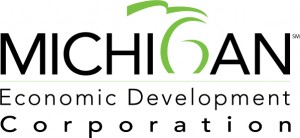
Public Spaces Community Places (PSCP) has been named a finalist in this year’s Innovations in https://www.greeningdetroit.com/member/michigan-economic-development-corporation/American Government Awards competition sponsored by the Ash Center for Democratic Governance and Innovation at the John F. Kennedy School of Government, Harvard University. PSCP is a collaborative program whereby local residents play an active role in raising donations for community-centered transformative projects backed by public matching funds.
As one of seven finalists selected from a competitive nationwide submission process, PSCP will compete for a $100,000 grand prize during the May 17 presentations to the Innovations Awards National Selection Committee, chaired by Kathleen Kennedy Townsend, former Lieutenant Governor of Maryland, and niece of President John Kennedy.
Presentations will be held at Harvard University in Cambridge, Mass. and livestreamed on the Ash Center website at
http://ash.harvard.eduDesigned by the Michigan Economic Development Corporation (MEDC), PSCP has generated funds for community projects around the state, including parks, public sculptures, bike trails, boardwalks, gardens, community centers, festivals, sustainable urban agrihoods, pavilions, beautification initiatives, playgrounds, alleyways, murals, river clean ups and farmers markets. PSCP is a partnership among MEDC, Michigan Municipal League and Patronicity, a Detroit-based crowdfunding platform.
“Thriving community places define and reflect a community’s economic vitality,” said Katharine Czarnecki, Senior Vice President for Community Development, MEDC. “Public Spaces Community Places has proven to be an effective, grassroots-driven approach that has proven key to attracting and retaining talent, and thereby growing stronger local economies.”
PSCP focuses on creating new or activating distressed public spaces for community use. By design, the program enhances public infrastructure and development of community spaces that might not have been supported with municipal funding, she said.
“These finalists are in the vanguard of creative, solution-oriented governing, demonstrating that the drive to make government work better and do more comes from all levels and jurisdictions of every size,” said Stephen Goldsmith, Director of the Innovations in Government program at Harvard’s Ash Center.
Selected by a team of policy experts, researchers, and practitioners, the top initiatives in Harvard’s innovation in government competition represent efforts of city, state, and federal governments to address timely policy issues, such as economic development, environmental and community revitalization, public health, equal access to education, criminal justice, and health care.
“These programs are focused on an impressive range of areas and some of the country’s most pressing social concerns, including the opioid epidemic, government efficiency and efficacy, environmental conservation, homelessness, and the school and workforce readiness of our citizens,” said Goldsmith.
PSCP is a grassroots-based model in Michigan that has raised more funds than any other state, and is having a transformative impact on reshaping communities. In nearly three years, PSCP has raised $4.3 million from communities and an additional $3.6 million in matching funds from the MEDC.
To date, the program has successfully raised funds and granted dollars to 116 community crowd-granting campaigns. The average project goal is $33,200 with approximately $37,900 raised per campaign. More than 19,000 Michigan patrons have contributed to the fundraising.
Harvard’s JFK School of Government’s Innovations in American Government Awards was created by the Ford Foundation in 1985 in response to widespread pessimism and distrust in government’s effectiveness. Since its inception, over 500 government innovations across all jurisdiction levels have been recognized and have collectively received more than $22 million in grants.
About the Ash Center for Democratic Governance and Innovation
The Ash Center for Democratic Governance and Innovation advances excellence in governance and strengthens democratic institutions worldwide. Through its research, education, international programs, and government innovations awards, the Center fosters creative and effective government problem solving and serves as a catalyst for addressing many of the most pressing needs of the world’s citizens.
 $50,000 goal to win matching grant through MEDC’s Public Spaces Community Places initiative
$50,000 goal to win matching grant through MEDC’s Public Spaces Community Places initiative




 Chuck Newman Impact Award Recipient
Chuck Newman Impact Award Recipient